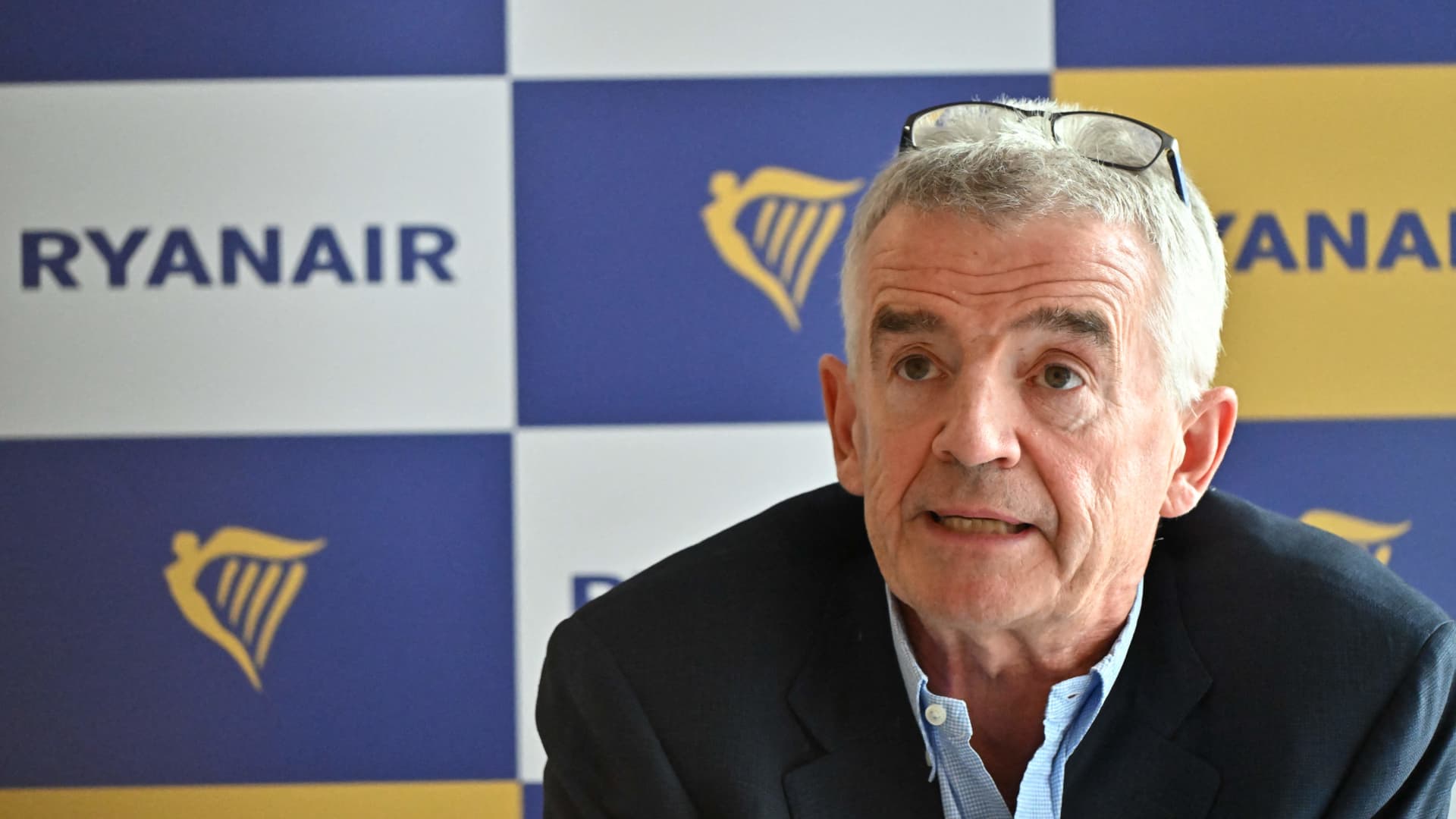Ryanair on Monday reported record summer profits, but CEO Michael O’Leary warned that the winter is likely to be “very fragile.”
“We look set for a strong winter but I’m conscious last year we had omicron at the end of November which crushed Christmas and the Ukraine invasion crushed Easter,” O’Leary told CNBC’s “Squawk Box Europe” on Monday.
The Irish airline posted its largest ever after-tax profit for the six months to September at 1.37 billion euros ($1.37 billion) on Monday.
There was an expectation that demand could shrink as the cost-of-living crisis takes its toll on household budgets across Europe, but appetite for travel is still there, he said.
“We’ve been waiting for demand to tighten up but we’ve not seen it yet — but there is a fragility there,” O’Leary told CNBC. “[People] were locked up for two years [during the Covid-19 pandemic], travel is one of the things they’re going to keep doing,” he said.
Future of European air travel
Looking ahead, O’Leary said the “real overhang” for the next two to three years will be higher financing costs as interest rates have soared, which will likely cause the disappearance of airlines that can’t keep up.
“I think we’re going to see in the next four to five years the final consolidation when Europe moves to four large airlines, three big connecting carriers and one large low-cost carrier,” O’Leary said, with Ryanair filling the “low-cost carrier” spot.
Price will be the tipping point for determining which airlines survive in the next decade, according to O’Leary.
“The real barrier to entry to Europe in the next four to five years is going to be ‘can you compete with Ryanair at £9.99?’ and if you can’t, then don’t try,” he said.
Seismic change
Ryanair committed to being carbon neutral by 2050 in March, but supplies for sustainable aviation fuels remain small, according to O’Leary.
The airline is adding more Boeing 737 MAX aircraft to its fleet, which are capable of carrying 4% more passengers and burn 16% less fuel, although production has been delayed due to supply chain issues.
New engine technology is another way the sector will eventually improve its environmental credentials, but engines that could cause “seismic change” in the industry won’t be available “before 2030, 2040,” O’Leary added.
